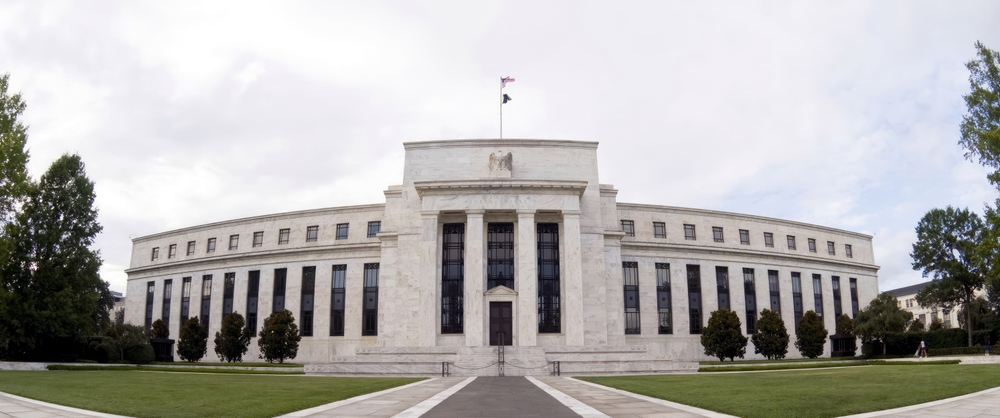
Will State Courts Set National Climate Policy?
Will the Maryland Supreme Court expand state law to address a global issue?
The Maryland Supreme Court will hear arguments today on why a series of climate lawfare cases brought by officials in Baltimore, Annapolis, and Anne Arundel County should move forward. They are suing energy companies over climate change, seeking billions in damages for public health and infrastructure.
Climate lawfare overall, and those cases specifically, are undermining Maryland Governor Wes Moore’s efforts to position his state as a leader in the AI revolution while providing relief to his constituents from record-high energy prices.
The litigation began in 2018, long before ChatGPT, Claude, Copilot, Grok, and other general-purpose chatbots transformed daily life. Since the climate cases were filed, AI has experienced rapid growth, and Gov. Moore, a Democrat, has made attracting advanced technology companies to Maryland a key part of his economic agenda. He is correct to do so. Maryland has flagship universities, a highly educated workforce, and close proximity to Northern Virginia’s technology corridor.
At the same time, the governor is working to bring new energy sources online to combat a supply crisis that’s driving up energy costs for Marylanders. However, he cannot accomplish these objectives without cooperation from American energy companies. The extreme claims at the heart of the Maryland lawsuits only hinder such cooperation. California’s climate lawsuits and heavy regulations have led Chevron to cancel projects in the state and move to Texas.
To support the increasing demand for AI, Gov. Moore has endorsed several measures to expedite data center development. One provision exempts data centers from lengthy environmental reviews. Another allows them to negotiate their own power purchase agreements. That second measure is crucial because data centers consume a large amount of energy. A RAND Corporation study predicts that data centers will require 68 GW of power to operate by 2027, doubling the global data center power needs in 2022 and amounting to three-quarters of the current power used by the entire state of California.
If Maryland and the capital region want to become a major AI hub, they need more energy now. Despite the Moore administration’s efforts, the state is unprepared to meet this demand. Maryland faces an energy crisis, as it is a net-energy importer, and its energy capacity has decreased by 6,000 MW since 2018, according to PJM Interconnection, a mid-Atlantic grid operator. Climate lawsuits exacerbate these problems.
Soaring energy costs make Marylanders particularly sensitive to the state’s grid issues. Multiple factors have caused a tenfold increase in capacity costs — charges from utilities related to overall power supply and grid infrastructure. Most Maryland residents have seen their bills rise, with some experiencing a 24 percent increase from last year. The state’s utility system is also facing a debt crisis, with Maryland ratepayers owing $170 million, up from $97 million in 2024. Ordinary residents are bearing the brunt.
Climate-related legal battles in Maryland threaten to deter the investments necessary to lower high energy prices, create well-paying tech jobs, and generate new tax revenue. Annapolis and Baltimore haven't disclosed the amount they will demand from the energy companies if they win. In a similar lawsuit, Multnomah County, Oregon, is seeking $50 billion from energy firms. Carbon emissions from data centers are projected to reach 2.5 billion tons by 2030 — about ten percent of current global emissions — mainly due to AI demand. U.S. energy companies can’t be expected to power the AI revolution if shareholders are forced to pay billions in legal costs
Fortunately, in the lower courts, Maryland trial court judges have dismissed the climate lawsuits. In a detailed ruling, Judge Videtta Brown explained that Baltimore was overstepping the role of the state and federal governments by trying to use state law to regulate interstate energy emissions. The fact that the Maryland cities claim they are holding energy companies accountable for hiding the environmental impacts of their products, as Judge Brown noted, is just “a way to get in the back door what they cannot get in the front door.” Whether climate advocates try to frame their claims as nuisance or consumer protection issues, the outcome remains the same.
The Maryland Supreme Court will decide whether the state will join the chorus of courts in Delaware, New Jersey, New York, Pennsylvania, and South Carolina, all of which have ruled that state laws cannot be stretched to solve a global problem. In an amicus brief, Civitas senior fellows John Yoo and Richard Epstein convincingly argue that using the state court system to set nationwide climate policy violates federal and state tort law. “If the climate is changing,” they write, “then the Nation should decide how to address it.”
If the climate cases in Annapolis and Baltimore succeed, Marylanders will miss out on rate relief and a prominent role in AI innovation. These significant policy consequences should not influence the Maryland Supreme Court’s decision, and they do not need to. The lower courts have already provided enough reasons to dismiss these lawsuits.
Michael Toth is the director of research at the Civitas Institute.
Economic Dynamism
.jpg)
Do Dynamic Societies Leave Workers Behind Culturally?
Technological change is undoubtedly raising profound metaphysical questions, and thinking clearly about them may be more consequential than ever.

The War on Disruption
The only way we can challenge stagnation is by attacking the underlying narratives. What today’s societies need is a celebration of messiness.

Unlocking Public Value: A Proposal for AI Opportunity Zones
Governments often regulate AI’s risks without measuring its rewards—AI Opportunity Zones would flip the script by granting public institutions open access to advanced systems in exchange for transparent, real-world testing that proves their value on society’s toughest challenges.

Downtowns are dying, but we know how to save them
Even those who yearn to visit or live in a walkable, dense neighborhood are not going to flock to a place surrounded by a grim urban dystopia.

The Housing Crisis
Soaring housing costs are driving young people towards socialism—only dispersed development and expanded property ownership can preserve liberal democracy.

Oren Cass's Bad Timing
Cass’s critique misses the most telling point about today’s economy: U.S. companies are on top because they consistently outcompete their global rivals.

Blocking AI’s Information Explosion Hurts Everyone
Preventing AI from performing its crucial role of providing information to the public will hinder the lives of those who need it.



.jpeg)




.jpg)





